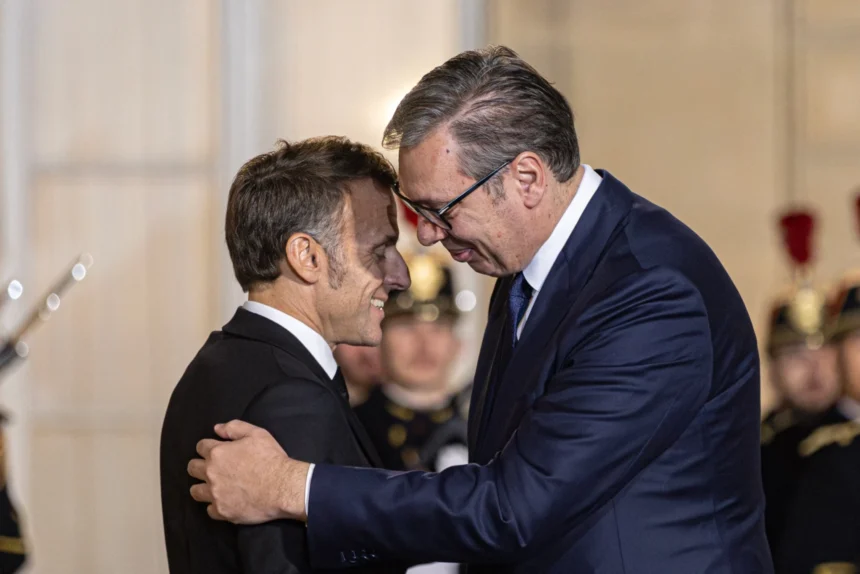The Serbian government has intensified its efforts to appease the European Union, aiming to secure political goodwill and much-needed financial support — but without committing to the strict rules and obligations that full EU membership would require.
President Aleksandar Vučić, long known for his talent in navigating foreign policy, now finds himself trapped by Serbia’s deep dependency on Russia — a situation he helped create. His earlier claim that he had not even noticed the geopolitical shift caused by the fall of the Berlin Wall continues to haunt him, illustrating how Serbia’s “four pillars of foreign policy” were always unsustainable, particularly after Russia’s invasion of Ukraine.
Today, Vučić is attempting to escape this corner by deploying an intensive charm offensive toward the EU and specific member states.
Ana Brnabić on a Mission
Parliament Speaker Ana Brnabić has emerged as Vučić’s special envoy, praising Serbia’s lithium reserves in Paris and promising renewed acceleration of reforms in Brussels — even while key democratic processes in Serbia were being deliberately sabotaged, such as the election of new REM Council members.
Brnabić then rushed to Kyiv, where she even offered “Serbia’s assistance” on Ukraine’s EU path, despite Serbia being listed after Ukraine and Moldova in the EU Enlargement Strategy — a ranking that signals the order of accession.
This diplomatic hyperactivity continued with her repeated returns to Brussels, all part of a broader attempt to show Serbia as a constructive partner.
Vučić and Macron: A Three-Hour Conversation
Vučić met with French President Emmanuel Macron, boasting afterward about topics ranging from Serbia’s EU prospects to defense cooperation and economic investments. When asked whether Serbia sought financial relief, Vučić sharply dismissed the question, insisting the country is fiscally stable.
However, EU forecasts paint a different picture:
- Serbia’s economy has significantly slowed,
- factories are closing,
- thousands are losing jobs, and
- further EU funding will be conditional on concrete reforms, not promises.
To access the full €1.58 billion available under the new Growth Plan, Serbia must implement 98 reforms by 2027 — including rule-of-law benchmarks and constructive engagement with Pristina — none of which appear realistic under the current regime.
The EU Has Lost Its Patience
After recent EU reports, the changed tone of Ursula von der Leyen, Sweden’s suspension of aid, and the EPP’s consideration of expelling Vučić’s SNS, analysts note that Brussels no longer believes in Vučić’s reform promises.
Experts like Vedran Džihić and Dušan Reljić argue that:
- Vučić’s international image is irreparably damaged,
- EU diplomats are fully aware of the regime’s authoritarian drift,
- Serbia’s “stability” narrative has collapsed amid protests, violence and democratic backsliding.
The regime’s growing reliance on repression, including towards students and protesters, risks triggering even harsher EU reactions.
What Comes Next?
Analysts believe that:
- The EU’s shift is now irreversible,
- One or two more regime missteps could eliminate any remaining goodwill,
- If this continues, the EU will be forced to back alternative political forces in Serbia.
Some member states may eventually consider sanctions, following Sweden’s lead.
The Trump Factor
The government is increasingly betting on Donald Trump, hoping a second Trump presidency would weaken the EU and reward Serbia’s closeness to the U.S., while distancing from Brussels.
However:
- Trump has threatened 500% tariffs for countries trading with Russia,
- Serbia’s economy could be severely hit,
- A U.S.-driven geopolitical shift may leave Serbia more vulnerable, not stronger.
Thus, the regime continues simultaneously misleading the EU — pretending commitment to reforms — while drifting away from European norms.







